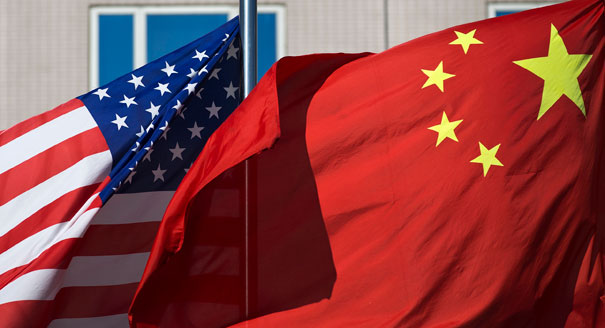Coalition for a Prosperous America: China Retaliatory Tariffs: The Age of Appeasement Must End
By Michael Stumo, CEO of CPA | April 03, 2018
The Coalition for a Prosperous America (CPA) strongly supports the Trump administration’s shift from naive “free trade” to the realpolitik “strategic trade” practiced by most industrial nations. Strategic trade will lead to industrial recovery, better jobs and prosperity in the US.
Challenges will arise as we transition from trade appeasement to protecting national economic interests. Other countries will engage in counter-moves that the US must then address effectively. America must use both its leverage and creative domestic policy effectively to protect our workers, farmers and ranchers as these moves and counter-moves continue into the future.
The US cannot tolerate China’s weaponized trade and investment practices. We cannot back down after the first retaliatory announcement. Our leverage is access to the largest consumer market in the world. America must rebalance trade and investment for our citizens to have good jobs in the future. The World Trade Organization has been blind to global trade imbalances and often exacerbated the problem.
The national-security-based tariffs on aluminum and steel were a needed beginning but will be modest in dollar value. Despite the initial foreign country protest, Trade Ambassador Lighthizer created a scenario whereby previously recalcitrant countries are acting to prevent China from dumping its overcapacity on the world and, instead, consume it domestically.
The administration’s announcement of technology-theft-based tariffs against China is strategically important. The market, media and foreign reaction to these tariffs was excessive and often misleading. Tariffs on China’s government-subsidized imports have the potential to boost America’s industrial production and our exports. Indeed, the US composition of trade has recently shifted alarmingly to energy and commodities and away from value added and advanced products.
More retaliation will be threatened and carried out as the Trump administration takes further action to rebalance the overall US trade deficit. Because many foreign countries excessively rely upon US consumers for growth, their interest in deterring US action is strong. As the administration takes more direct aim at the trade deficit, other countries will be forced to adjust their economic strategies. Politically and economically sensitive industries will be targeted for retaliation. Markets will overreact before returning to the fundamentals.
Agriculture is one sector that is and will be targeted. However, changes in bilateral trade flows have little to do with farm and ranch profitability. Despite past promises of trade agreement benefits, farmers and ranchers did not benefit. The US agriculture economy is in a multi-year crisis due to low prices. Those low prices are primarily caused by excessive market power by domestic agri-business buyers and oversupply of commodities by foreign countries.
The farm share of the consumer dollar continued to decline as more trade agreements were signed. The US share of the global market in soybeans, corn and wheat also decline because of overproduction in countries such as Brazil and Ukraine. If China slows US soybeans purchases, the result will be a mere divergence to other regions rather than a reduction of overall exports. The fundamental factors of global supply and demand will govern the markets after any initial overreaction.
The Trump administration should nonetheless be prepared to minimize harm. Creative domestic agriculture programs that were previously rejected should be reconsidered. Our trade deficit in cattle, hogs and sheep should be reversed to provide new opportunities for American farmers, ranchers and rural communities and to consume more corn and soybeans domestically. Downstream users of affected products, like steel, should unite and work with the administration to create broader remedies rather than block our tariff actions. A comprehensive tariff, industrial and exchange rate management strategy should be developed.
America must be resolute. The age of appeasement must end. We can rebuild our economy, our wages, our industries and our prosperity. The choice is ours. The alternative is a low wage future and a second rate geopolitical status in the world.
